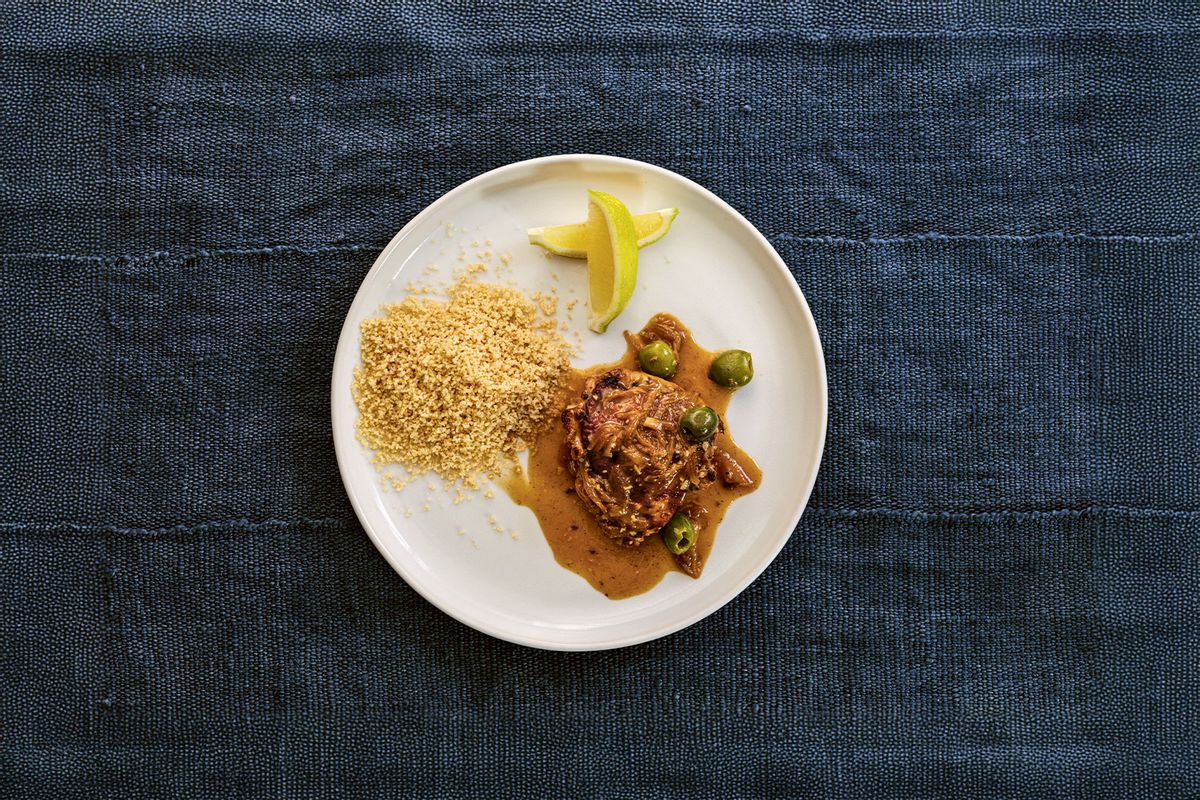Alexander Smalls is Southern through and through. “I’m like Faulkner,” he says. “We put commas, not periods on everything—it’s never over.” This sentiment rings true not only in his storytelling but also in his cooking, where each dish carries history, memories, and a sense of continuity.
His deep connection to Southern and Gullah Geechee cuisine naturally led him to “The Contemporary African Kitchen,” a project that explores the shared culinary heritage of the African diaspora.
As he puts it, “There are recipes that come home to me because of my own Gullah Geechee experience”—specifically chicken pilau, chicken perloo and jambalaya. “They’re one of those rice-and-chicken dishes — a one-meal wonder.”
In terms of standout recipes from the book, Smalls is particularly drawn to the Kenyan chef’s contribution, which incorporates Indian spices like masala. He connects that influence to a dish from his own childhood, Chicken Bob— a comforting Gullah Geechee dish his mother often made. “That’s exciting to me,” he says. He also recalls a shrimp dish from a Mali chef that reminded him of a smothered shrimp dish his father prepared for special occasions.
When asked what inspires him to cook, Smalls responds, “I can answer it this way: The same reason I breathe.” Cooking is an essential part of his life, and when he’s at home, he cooks every day. One meal he almost always prepares is breakfast, “come hell or high water.” If he misses it in the morning, he’ll sometimes make it again before bed.
“First of all, it’s very special. It’s something I do for myself. Most of my cooking is for other people. But breakfast is something I do for me, and it’s ritualistic,” he explains. His breakfasts vary widely, from duck eggs to oatmeal to smoked salmon on cornbread toast. He loves incorporating greens and, as a Southerner, grits. He also draws inspiration from the African dish jollof rice, combining it with a Charleston red rice dish for a breakfast hybrid. “I just have a ball! It’s time I spend with myself, being creative,” he adds.
Want more great food writing and recipes? Subscribe to Salon Food's newsletter, The Bite.
For Smalls, cooking isn’t just about food — it’s about identity, memory and tradition. This philosophy also anchors his newly released children’s book, which draws from his own upbringing.
“That book really represents how I build character, self-esteem, courage and confidence through cooking,” he says.
The book’s premise is based on his real-life childhood experience, where his mother lets him know that he’s now old enough to “do Sunday dinner and dessert.” It’s a significant responsibility for young Alexander, and he’s determined to make the perfect lemon meringue pie. Sometimes, his mother would let him make two: one for himself and one for the family.
Smalls calls the book a labor of love: “I feel like I’ve been writing it all my life. It was in me to do, and something I always wanted to do because I had such an inspiring childhood — loving, caring — and I wanted to share that.” He hopes the book will reach children “at that place and space when they’re starting to understand who they are and believe in something.”
“Not all children have parents who nurture that — or for whatever reason can nurture it — so there should be books that become teddy bears,” he says. “Like companions [so] that kids can see there are situations they can learn and associate and identify with.”
We need your help to stay independent
With two wonderful books recently released, I asked Smalls if he has something else on the horizon. “Every book burner on the stove is going at the same time—the oven, too!” he says, excited. He’d love to write a part two of “Grace the Table,” expanding on the original, which took readers from childhood to the day he opened his first restaurant. “Obviously, I’ve opened several restaurants since then and lived two or three more lives, so at some point, I need to get back to that.”
Smalls also feels that “The Contemporary African Cookbook” is just “touching the surface” and would love to explore it further. “The premise was exciting for me because I want it to be an educational tool. I want it to be a welcoming call. I want white women in Arizona, Kansas or Wyoming, even, to make African food. I want people to have African parties and bring dishes.”
He also reflects on the journey of other cuisines, like Italian and Chinese, which were once considered “exotic” before becoming Americanized. Smalls jokes that Italians and Italian-Americans wouldn’t even recognize Chef Boyardee.
“The point is, you have this entry into society, and with the right mix of fate, education and entrepreneurial opportunities, more Africans will be visible in this country,” he says. “And that’s where we start to see the hope and the promise.”
Read more
about this topic



Shares